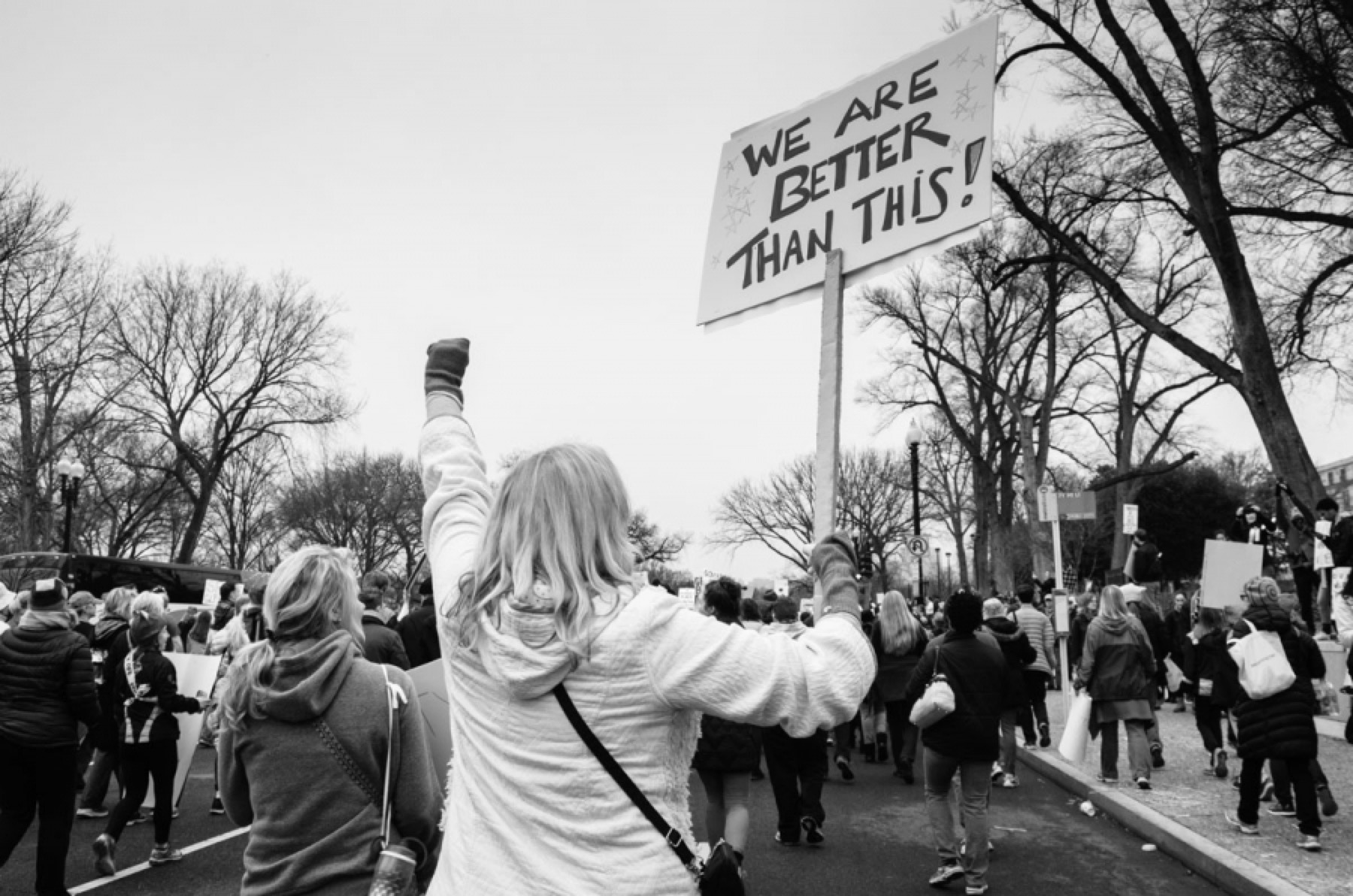
Photo by Jerry Kiesewetter on Unsplash
SUSTAINING CHANGE FOR ALL
By Sandra Gutierrez
Chronicles from the Nuevo South
TThis may have been a year of difficulty and angst for our country, but it has also been one in which long-held, collective pain initiated social change. No other movement this year accomplished more than the #MeToo crusade, which I trust is only nascent. I believe this social revolution will be pivotal in bridging much of our country’s great divide. Perhaps through this collective rebuke of sexual harassment, we will finally move issues forward past the back-and-forth pendulum that perpetuates the fight but never resolves a conflict. Because it is not enough to just want change; change requires action. Furthermore, not all change is positive, and only that which is thought out intelligently can lead to permanent solutions that benefit the common good. What we claim as collective good should encompass everyone in a community without bias of gender, but also without bias of political ideology or religious belief.
As the year ends, I find myself thinking that—finally—there are enough of us to complete what, in my opinion, the feminist movement of my mother’s generation failed to do for those of us who followed. With its well-meaning but reckless sexual revolution based on women’s rights to do with our bodies what men did with theirs, the feminist movement of the 1960s failed to delimit legal and social boundaries that prevented those in power from abusing it. Perhaps women found equality in the bedroom, and yes, some women found equality in the boardroom, but we were left without the parameters to protect ourselves from men in positions of power who saw in our sexual liberation a license to abuse us. True feminist empowerment isn’t just about being able to say “no.” It’s about being able to say so without fear of retribution.
My first foray with the feminist movement came when I attended Smith College, Gloria Steinem’s alma mater (and Julia Child’s, too). I suddenly went from being a girl to being a woman. I heard about feminism in the classrooms, in the hallways, and in the dining room, though I felt then that the feminist movement of my youth did not embrace the whole of who I was. I supported equal pay and I wanted freedom to do what I wished with my body. And yet, at the time I felt that the movement was angry with men and that it didn’t allow for questioning. I was told to vote only for women because getting to the top was the highest goal, even if I disagreed ideologically. In my opinion, yielding blindly to a dictatorship of the mind based only on my gender was akin to yielding to any dictatorship, and I had already survived that—literally. For me, sexual liberation was the least of my worries; nothing was more important than foreign policy and anti-communism.
My upbringing in Guatemala exposed me to different realities than those of my American contemporaries. By the time I went to college, I had lived through military dictatorships, two coup-d’états, several terrorist attacks (including a bombing that took out the telephone lines of my entire neighborhood and broke the window in my room where I was doing homework on Romeo and Juliet—when something like that happens, you never forget where you were), and a siege of my American school, complete with gunshots and bombs. At sixteen, my principal pulled me out of class so I could comfort my friends whose parents had been murdered by terrorists. By the time I was eighteen, I had attended the burials of many good people whose only error was being in the wrong place at the wrong time. I didn’t have to wait to attend college to become political; political survival and rebellion were in my blood.
I am grateful to the feminists who came before me and who made it possible for me to be where I am today. But mostly, I am tremendously grateful to the women who are speaking up now. Their actions require courage in the face of danger—physical, professional, and social. These women are not only standing up for themselves; they are standing up for all of us who have suffered alone and kept silent. #MeToo, by the way. My first time, a teacher gave me a C because I wouldn’t slow dance with him at a party; then there were more.
For years, there was such inequality of power and a complete lack of legal and criminal consequences for harassers that women couldn’t really ascertain power over their bodies, even though we were told that we could. This time, I hope consequences are inevitable, strict, and inexorable. Only then will we protect women in future generations and make them truly free. And if the #MeToo movement is to succeed, it must be fought by all women and for all women, notwithstanding ideology, profession, or age. I’ve made the decision to allow myself to be filled with hope that the next twelve months will be better than the last despite the fact that this December finds me more pensive and solemn than any other in my midlife.
On the last day of this year, I intend to raise a glass in celebration of all of the women who were part of my column this year, each of whom is fighting for the good of others in their communities: by honoring the culinary heritage of African-American cooks, demanding respect for the peoples of Appalachia, opening a center to help immigrant Muslims and Latinos assimilate in the South, celebrating the contributions of immigrants in the Smithsonian Institution, breaking stereotypes as Latinas and succeeding in their careers despite having to overcome prejudice. I’ll toast to the women who keep their food traditions alive for future generations. Together, we make progress.
“Chronicles from the Nuevo South” is a part of our weekly story series, The By and By.
Enjoy this story? Subscribe to the Oxford American.


